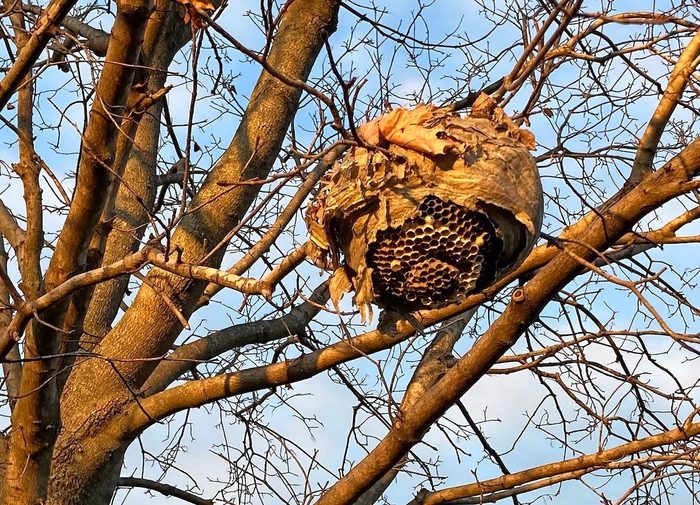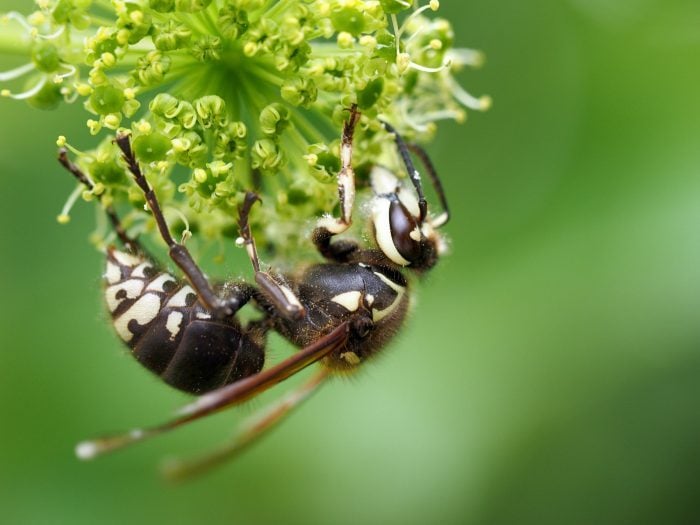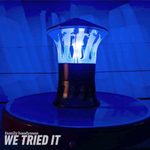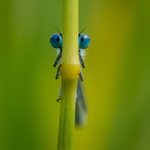What to Do if You See a Bald-Faced Hornet Nest

Here's how to identify a bald-faced hornet nest, and how to proceed if you find one in your yard.
Several kinds of wasps and hornets build nests of paper. They create the paper by chewing up wood and mixing it with their saliva. If you see a large, ball-shaped nest with exposed honeycombs in your area, it was probably fashioned by bald-faced hornets (Dolichovespula maculata), which only occupy it for one season.
On This Page
What Bald-Faced Hornets Look Like and Where They Live
To identify these insects, look for distinctive white markings on their face, thorax, legs and abdomen. Bald-faced hornets live throughout most of the United States, including Alaska, and also in Canada. It’s likely you have some in your neighborhood.
Bald-Faced Hornet Behaviors
According to Penn State University Extension, bald-faced hornets are not “true” hornets; they’re actually yellow jackets. All species in the genus Dolichovespula build these big, gray football-shaped nests. They’re often easier to spot in winter after leaves fall off the trees.
Yellow jackets, a type of social wasp, are predators that feed on many insects. They also like sugar and may visit hummingbird and jelly feeders, especially in the fall, when their numbers are at their highest. Social wasps build large nests and aggressively defend them if someone approaches within a few feet. There is one reproductive queen and hundreds of “workers.”
How to Deter Bald-Faced Hornets
You don’t want these pests anywhere around your home. Destroying a nest is the easiest way to deter them. However, that’s easier said than done, and dangerous to attempt if you’re not experienced.
If you find an active bald-faced hornet nest, it’s best to stay away from it. Seek professional assistance if it’s somewhere with a lot of foot traffic. If provoked, these busy insects will defend their home.
Homeowners have come up with creative ways to keep pests away. One popular and affordable pest solution is to hang pennies in a bag of water on a front porch. This hack, mostly used in the South in summer, is primarily a DIY fly repellent. Neem oil is another popular bug repellent.



